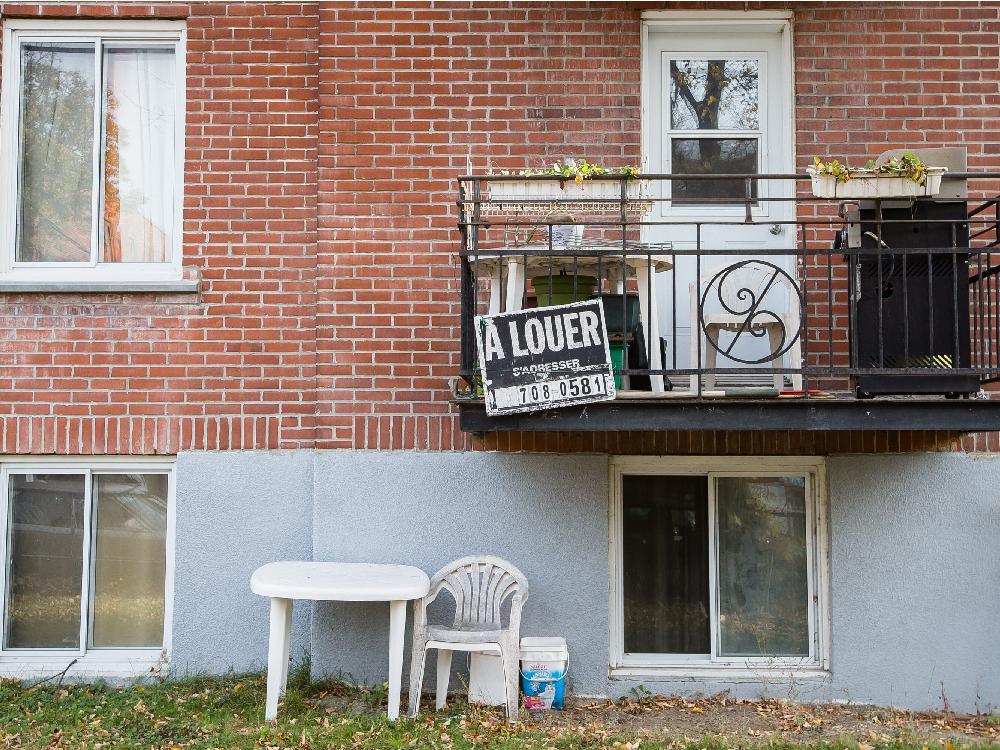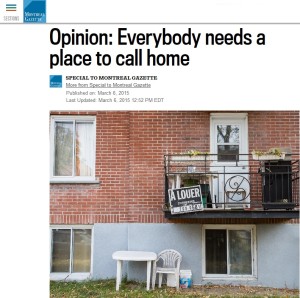Montreal Gazette – March 6, 2015
(En anglais)
As members of the housing rights committee of Project Genesis, we are alarmed to hear that the AccèsLogis program, the only program building social housing in the province, might be cut this year. All over Quebec, people and organizations are urging the government to keep this program going, including the Communauté métropolitaine de Montréal.
In Quebec, housing is a basic human right in jeopardy. In Côte-des-Neiges alone, 5,060 households are allocating more than 80 per cent of their income toward rent. What is it like to pay too much of your income in rent? It means not having enough for other necessities, basic things like public transport, heating, food, telephone bills, clothing, and medical and dental care. For parents, it’s a struggle paying for school supplies or new clothes when kids grow out of old ones. Hopelessness settles in: it’s a big cloud coming down and there is no way out. For many, physical and mental health problems ensue: depression, isolation, addiction, diabetes, heart problems, to name a few.

A balcony with a For Rent sign on an apartment building on Barclay avenue in the borough of Côte-des-Neiges in Montreal on Saturday, November 8, 2014. Dario Ayala / Montreal Gazette
Who needs social housing in “Condo Nation?” Seniors on pension, people with health problems or with disabilities, newcomers to the country, single parents, the working poor, those who are unemployed, people on welfare, and caregivers. Social housing is the solution for them. Here are the stories of two Housing Rights Committee members:
Ms. C lost her job as a translator many years ago. Getting social housing has meant feeling finally at home, safe and secure, after a series of very difficult experiences with roaches and mould-infested slums. “That’s what happens when you don’t have money in this city, you have to accept substandard housing,” she explained. For Mr. P, when he arrived in Montreal as a new immigrant, he had great dreams about what living in Canada would be like. Instead, after working for a few years, he and his wife developed severe health problems. He ended up living for 20 years in an apartment that was infested with cockroaches. His place was in a general state of disrepair. Year after year, his rent increased: in 20 years, it almost doubled, but the state of the apartment remained the same. “I would clean and clean my apartment but never feel like it’s enough. In 2014, I found social housing and it feels like heaven. I feel like 20 years later, the dream I had about Canada finally came true,” he said.
“Home sweet home,” the saying goes. But with the Liberal government considering cutting funding to AccèsLogis, the adage rings less and less true. We need to fight for social housing and stand up for the members of our society who can’t afford dazzling condo high-rises.
Susan Fitch, Claude Hopfenblum, Kurt John, Sheetal Pathak, Nalawattage T. Pinto and Molly Tenzer are members of the Housing Rights Committee of Project Genesis.




